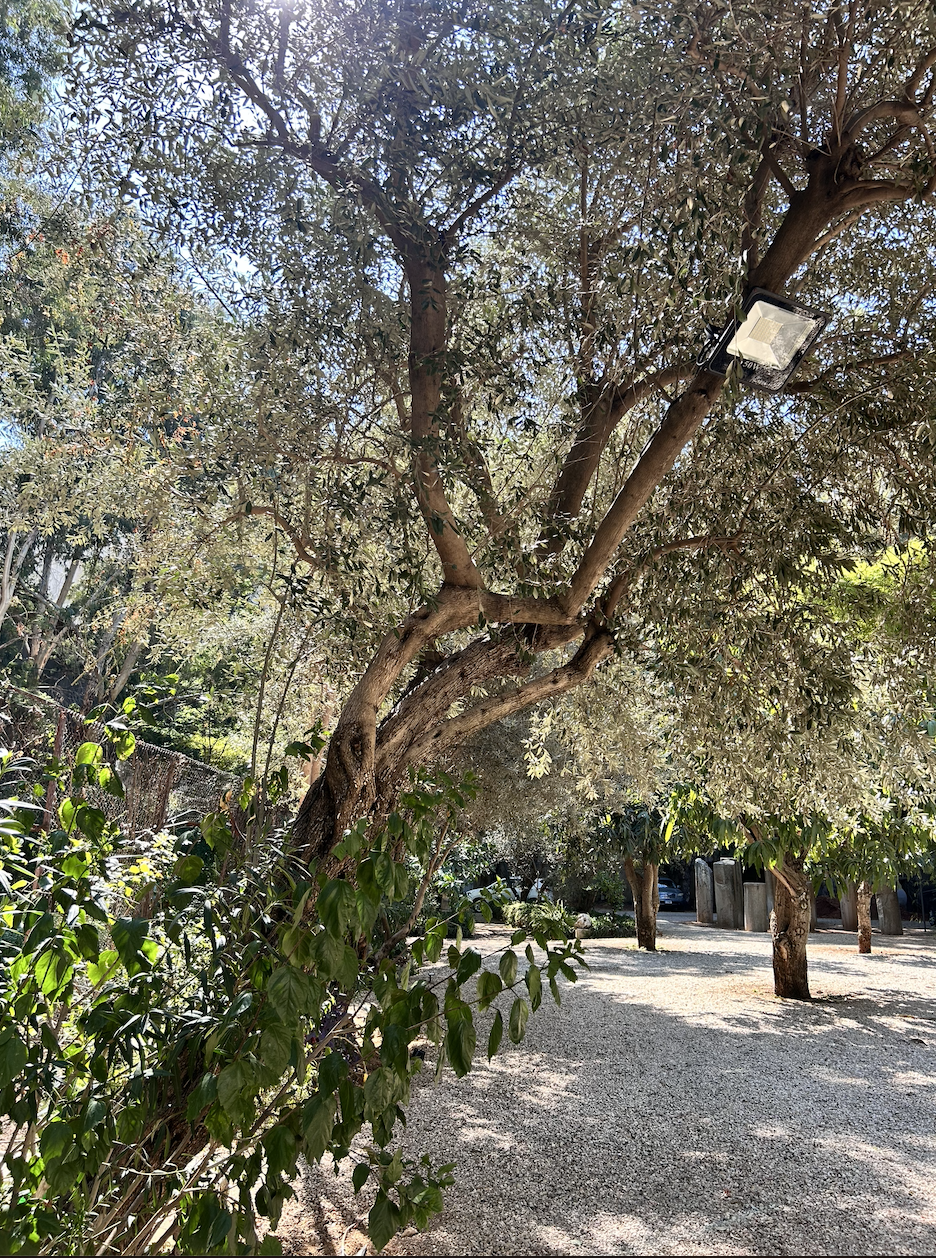Visit Us / Garden
The olive tree
L’olivier - زيتون
Description
The olive tree is the quintessential Mediterranean tree. It loves the sun and, once it has reached a certain maturity it tolerates droughts. It has a thick, sinuous trunk and small, elongated leaves with a silvery sheen. Along with its famous fruit it produces small white flowers.
Considered one of the oldest cultivated trees in human history, the olive tree is also renowned for its extraordinary longevity—some specimens live for several centuries, even millennia. The oldest known olive tree, located in Crete, is believed to be around 3,000 years old.
The color of an olive reveals its ripeness: the longer it remains on the branch, the darker it turns.
In ancient Greece, olive wreaths were placed on the heads of Olympic champions, and the tree holds sacred significance in both the Bible and the Qur'an.
For Charles Corm, however, the olive tree carries a somber symbolism—a tree exiled from Eden and a silent witness to Judas’s betrayal.

Poem
The Olive Tree
-I-
Its trunk twists and meanders,
As it rises from the ground
You can feel it is uneasy;
Something is troubling it;
It hesitates, as if it wanted to be free.
It sighs heavily into its branches
To blow out the weight,
Of an uncomfortable memory.
It strives to reach the sky
Its movements remain firm:
Nor tortuous, nor weak or trembling
It will not bow to its unspoken sorrow.
From the start, the brilliance of its youth seems wasted;
Like a fatal sign, its shape, comprised of dark knots,
Has the dull inflections,
Of an old dead tree.
There is an extreme nobility in the olive tree
That keeps its deep despair secret.
Looking inconsolable, almost in mourning
It alone, bears black fruit.
For it cannot forget the agony—
The tears, the abandonment, the silence, the horror—
Of Love on its knees, when at Gethsemane,
The Iscariot betrayed Jesus!
Its tiny leaves are so dry and hard, Endlessly cut and pounded into shreds. It could adorn the dark arches
Like a wire stripped of any sap.
The powdery colour of this small foliage
Has nothing of the gaiety of other green trees;
Like the forehead of the wise old man,
It looks sad, pale and bitter.
Its imperceptible flowers are scarcely bigger
Than its buds. Perhaps from fear of being bruised
Its chalice contracts. One wonders:
When did the Tree of Peace ever blossom?
-II-
[…]
We are led to remember the tragic jolts
That drove its roots to tear themselves out of the ground,
And twist its trunk’s energetic muscles,
To flee the earth and take flight.
God did not create it for earthly clay.
Exiled from the never-ending spring of Eden,
A dark spell traps it
In the fetters of this world.
Once a resident of the fabled land
More beautiful than the verse of any poet,
The tremendous sun with its mystical seasons
Raised its branches to a climate of honour.
The discreet olive tree is an aristocrat,
All the more simple and proud for not deigning to show
The titles and rank that an unforgiving nature
And cruel fate have sought to frustrate.
Yet the olive tree retains from its glorious past
The habit and instinct of the generous soul;
It remains, among us, modest and unremarkable,
Peaceful and serene, even though unhappy.
Perhaps that is why, for so many days,
Despite its grey leaves and sad, dark fruit,
The beneficent olive tree, exiled from Eden,
Gives us holy oil and sacred balm!
February 1940
Published in La Montagne Parfumée. Éditions de le Revue Phénicienne, 2004.



